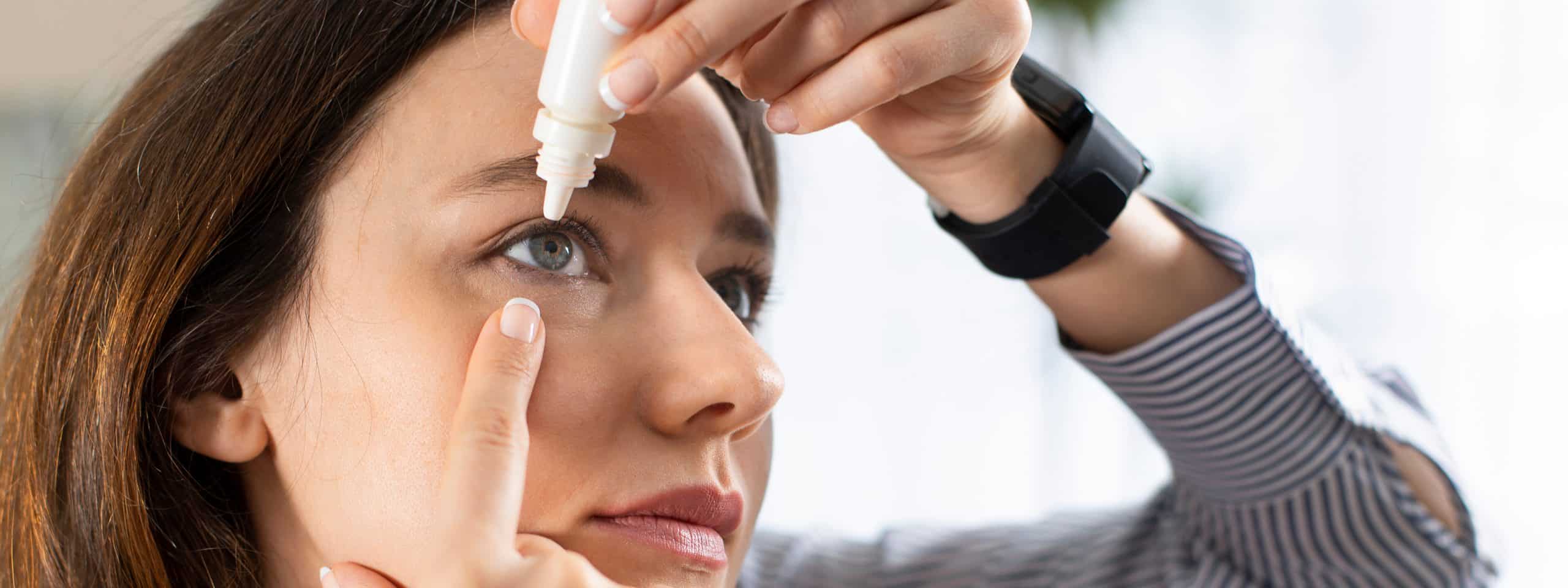Meibomian Gland Dysfunction: a problem with your lipid (oil) layer.
The lipid (oil) layer is produced by glands called the meibomian glands. They are the white squiggly lines imaged with infrared in the lower eyelid above.
Meibomian Gland Dysfunction (MGD) causes the oil in the glands to become thick and pasty (like butter) and block the glands’ opening onto the eyelid. Over time this can lead to gland atrophy. MGD treatments aim to improve the quality of the oil, returning it to a smooth and runny consistency (think vegetable oil vs butter).
Eye drops:
Artificial tears are not a treatment in themselves as they do not fix the cause of the disease. However, artificial tears are important in the short-term to provide symptom relief, and help make your eyes feel more comfortable and reduce redness and inflammation.
Nutrition:
Studies have found that increasing the Omega-3 in your diet helps to improve the consistency of the oil produced by the glands. Omega-3 is a naturally occurring fat found in many foods, particularly in oily fish varieties, including salmon and tuna. Your optometrist may recommend a small tin of tuna a day, or alternatively esterified Omega-3 capsules taken daily to ensure you meet the required recommended daily dose for your dry eye therapy.
Hot compresses and lid massage:
As mentioned above, MGD causes the oil in the glands to become thick and pasty like butter. Hot compresses, using specialized heatpads from your optometrist applied to the eyelids help to ‘melt’ the oil in the glands. The now smooth and runny oil can be expressed from the glands by gently massaging the eyelids. Your optometrist would
demonstrate and explain this procedure. Studies have shown that a strict three-month regimen of daily hot compresses not only provides immediate comfort, but can also lead to long- lasting improvement of your condition.
Antimicrobial lid cleansing:
MGD is often associated with blepharitis, a chronic infection of the eyelids that causes microscopic dandruff-like material to build up at the base of the eyelashes. This material then blocks the glands and causes MGD to worsen. If you have blepharitis, your optometrist will recommend regular lid cleansing to help reduce the bacteria and material build-up. The latest clinical evidence recommends lid-cleansing products containing manuka honey or tea tree oil. Your optometrist will advise you of the best local products available to you.
For patients with more severe MGD where conventional therapies are failing to provide enough relief, our clinic has the most cutting-edge technologies available on the world market to aid in your treatment.

